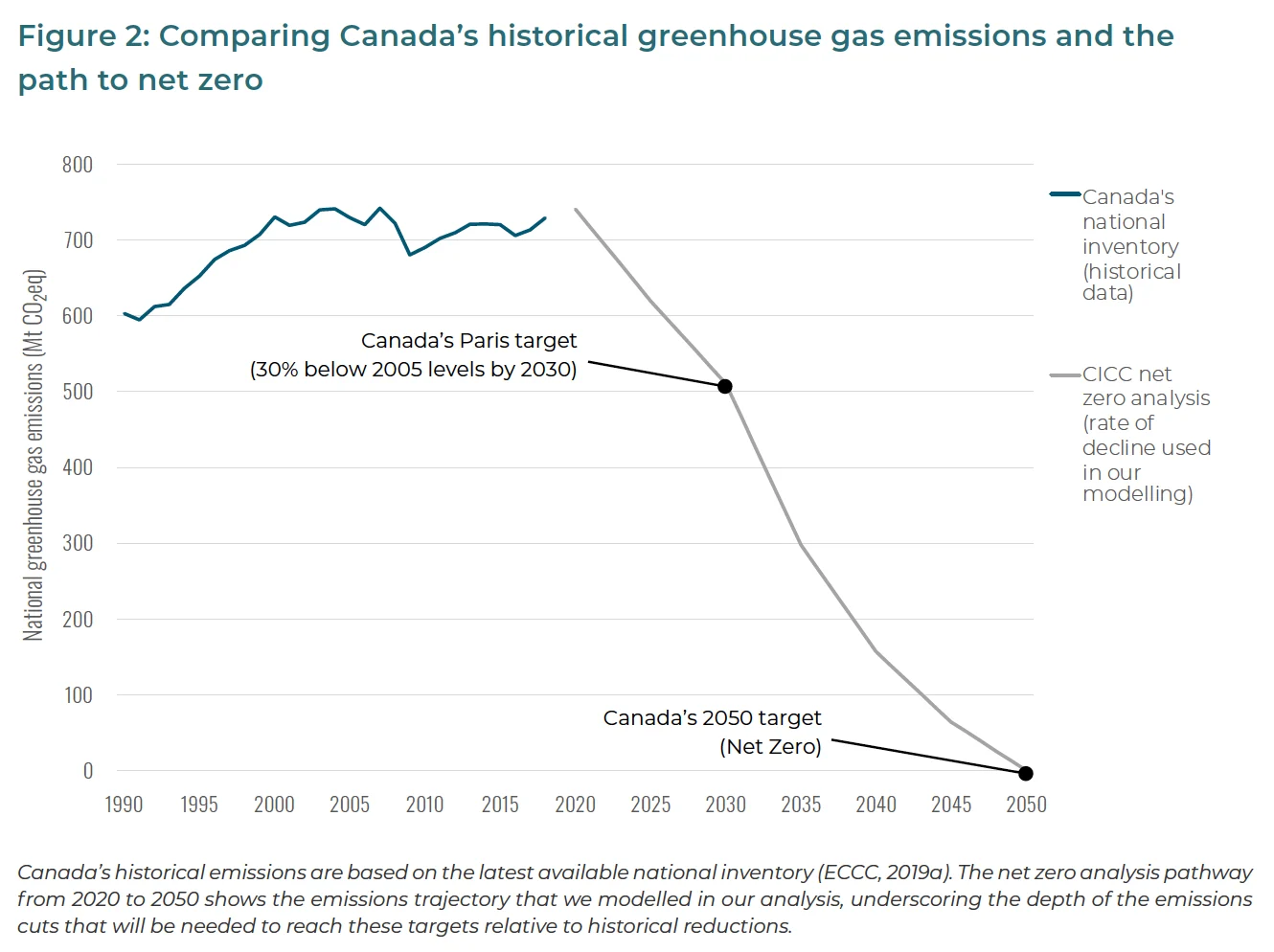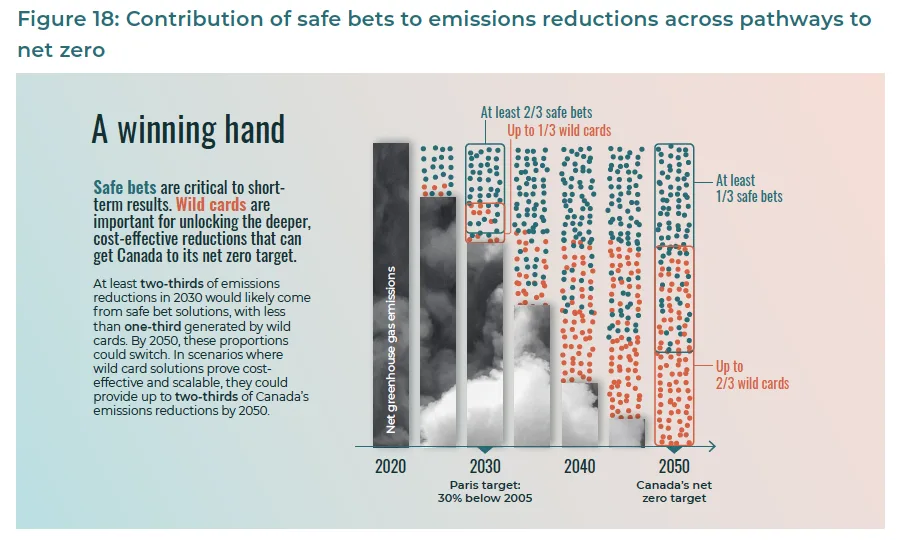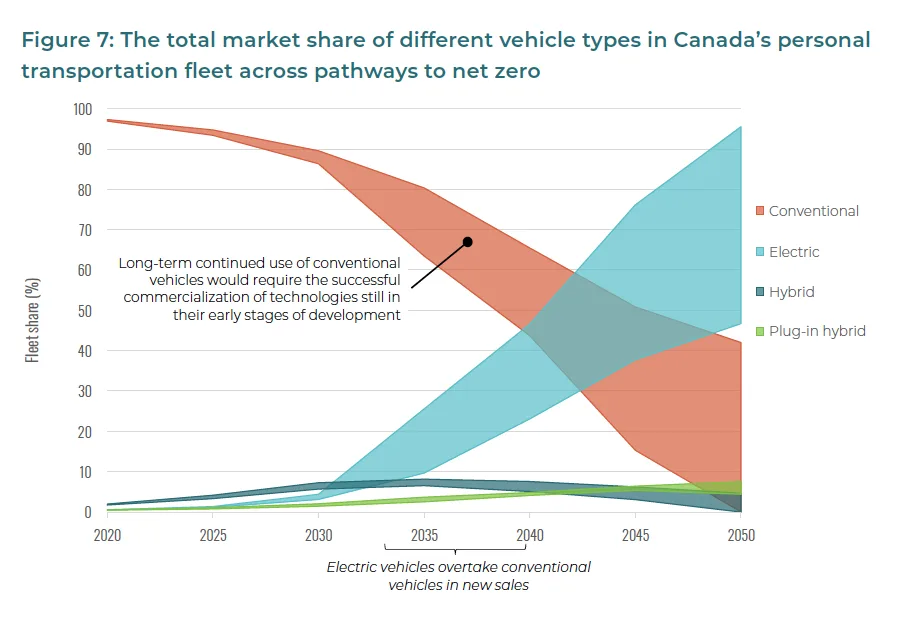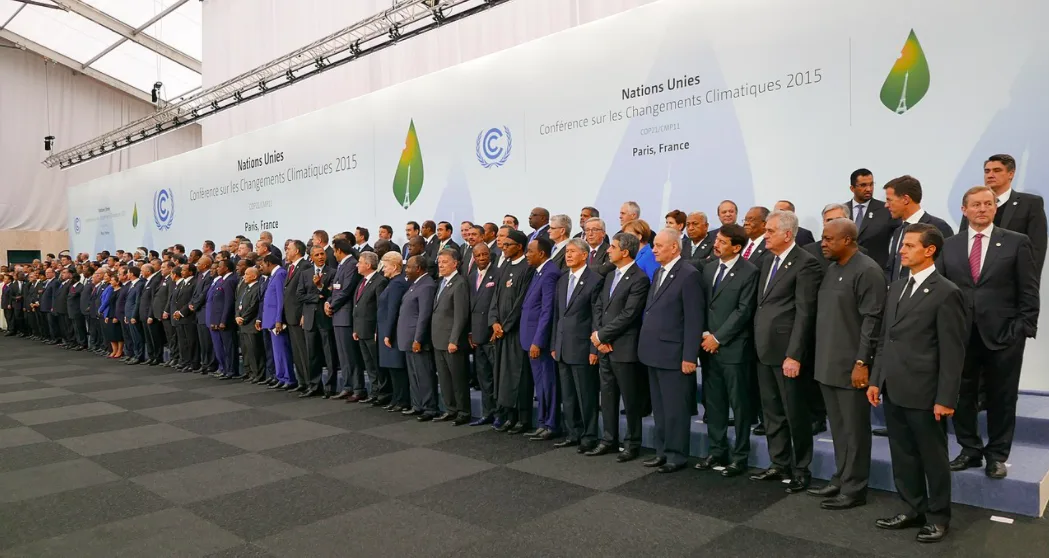
Canada could be net-zero by 2050 if these actions are taken
Report finds that there are numerous pathways that can lead Canada to net-zero greenhouse gas emissions by 2050 and that the country is in an advantageous position to do so.
A report from the Canadian Institute for Climate Choices finds that there are a number of scenarios in which Canada can achieve net-zero greenhouse emissions by 2050, a commitment that the country made in the Paris Agreement back in 2015. The report does not recommend one specific path to the 2050 goal, but emphasizes that “Canada has more advantages than other countries in pursuit of net zero” because of existing resources, infrastructure, and technologies.
The report defines net-zero emissions as a scenario where technologies and energy systems do not produce any greenhouse gases and technology is used to remove remaining emissions from the atmosphere and permanently store them.

Credit: Canadian Institute for Climate Choices
Expert consultations, deep decarbonization studies, and the analysis of over 60 modelling scenarios revealed a number of pathways that would lead to net-zero in 2050. Certain solutions were repeated in several scenarios and the report categorizes these as safe bets, such as existing technologies that can be scaled up and are “no regrets” options. Other prominent solutions were dubbed wild cards, which are “big-risk, big-reward technologies” that are more uncertain than the currently available technologies.
Modelling revealed that a mix of many solutions will be needed to achieve net-zero emissions, but across all scenarios, roughly 66 per cent of emissions reductions by 2030 will rely on safe bet solutions, meaning that a rapid expansion of reliable technologies and existing policies is needed. The role that wild card solutions will play by both 2030 and 2050 is uncertain and the report says that they are “complementary, not competing” solutions.

Credit: Canadian Institute for Climate Choices
The report says that wild card solutions are not guaranteed to play a significant role, however, their potential is vast and the report says that “they could fundamentally change Canada’s path to net-zero.” Policies are needed to expand safe bets and drive the development of wild cards, which will ideally happen as soon as possible to “ensure these solutions are ready when Canada needs them.”
Some of the impacts that Canadians could experience during the transition to net-zero by 2050 include lower household costs on energy services due to more clean energy and improved efficiency, more electric vehicles, and increased use of public transportation. All of these options are safe bets, whereas wild card solutions like carbon capture, liquid biofuels, and hydrogen fuel cells are less clear, due to their current stages of development.

Credit: Canadian Institute for Climate Choices
Regardless of the solutions used, the health benefits to Canadians will be significant. A report from the Canadian Association of Physicians for the Environment says roughly 112,000 lives could be saved between 2030 and 2050 from air quality improvements alone if Canada’s 2030 and 2050 emissions targets are achieved.
The main recommendations the report provides to achieve net-zero are: government incentives for the widespread deployment of safe bet solutions, a portfolio approach to manage the risks and opportunities of wild card solutions, implementing robust accountability frameworks, and accounting for fairness and inclusion throughout the journey to net zero so disproportionate costs and barriers are not posed to different regions, sectors, workers, communities, and income groups.

*Credit: Wikimedia Commons. (CC BY 2.0) *
The United Nations’ Intergovernmental Panel on Climate Change (IPCC) says that worldwide net-zero carbon emissions by 2050 are needed to limit global warming to 1.5°C above pre-industrial temperatures to reduce the likelihood for catastrophic climate change consequences, such as collapsing ecosystems, extreme weather events, and deadly natural disasters. Over 100 countries have net-zero commitments in progress and significant players in the private sector, including oilsands producer Cenovus Energy, the Canadian Steel Producers’ Association, and BP have also announced net-zero pledges.
Even though the Canadian Institute for Climate Choices is a publicly funded, non-partisan, and independently governed organization, the report emphasizes the critical role that policy plays in drastically reducing Canada’s greenhouse gas emissions.
“Ultimately, this country’s path to net-zero will be defined by policy choices made by all orders of government, as well as technological innovation and factors beyond domestic control, such as global market shifts and changing energy demand,” the report states.
Thumbnail credit: Colin Anderson Productions. Photodisc. Getty Images.












